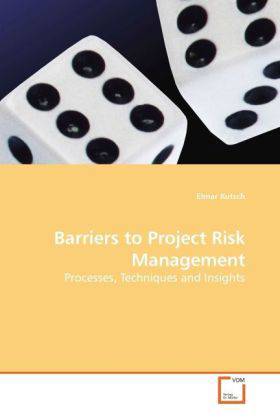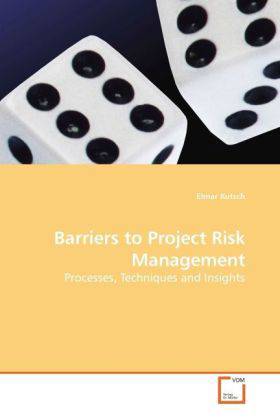
- Afhalen na 1 uur in een winkel met voorraad
- Gratis thuislevering in België vanaf € 30
- Ruim aanbod met 7 miljoen producten
- Afhalen na 1 uur in een winkel met voorraad
- Gratis thuislevering in België vanaf € 30
- Ruim aanbod met 7 miljoen producten
Zoeken
Omschrijving
Many information technology (IT) projects fail to meet specified project objectives of scope, time and budget. Despite well-established best practice project risk management processes, project managers perceive these processes to be ineffective in minimising the influence of risk on the project outcome. This failure may be contributed to by inadequate project risk management, the systematic utilisation of a process by project managers to identify, analyse and respond to risks posed by events and conditions that are not definitely known in advance, but which may adversely affect the success of the IT project. Factors or interventions causing the discrepancy between how adequate risks should be managed and how risks are actually managed are insufficiently researched. Hence, as part of an effort to understand this discrepancy the present study investigates how interventions influence the use of project risk management and ultimately influence ability of project managers to prevent risks from adversely influencing the project outcome.
Specificaties
Betrokkenen
- Auteur(s):
- Uitgeverij:
Inhoud
- Aantal bladzijden:
- 500
- Taal:
- Engels
Eigenschappen
- Productcode (EAN):
- 9783639061468
- Verschijningsdatum:
- 30/07/2008
- Uitvoering:
- Paperback
- Formaat:
- Trade paperback (VS)
- Afmetingen:
- 152 mm x 229 mm
- Gewicht:
- 662 g

Alleen bij Standaard Boekhandel
+ 155 punten op je klantenkaart van Standaard Boekhandel
Beoordelingen
We publiceren alleen reviews die voldoen aan de voorwaarden voor reviews. Bekijk onze voorwaarden voor reviews.











